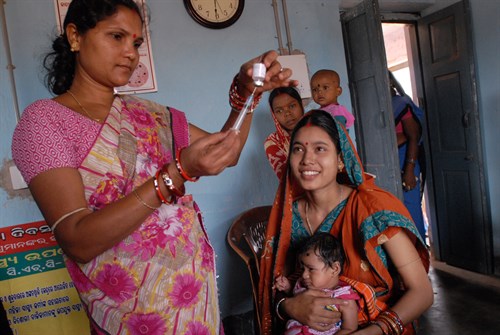
Kate Hawkins, 12 September 2014
The UK International Development Select Committee - a group of parliamentarians whose task is to monitor development policy - have included evidence from REACHOUT in their new report on health systems. We are delighted that they have turned their attention to the role of community health workers.
The report states:
65. The REACHOUT Consortium noted that "close-to-community" programmes "are increasingly being initiated and scaled up in response to the human resources for health crisis", but expressed concern at the lack of evidence on how best to support such programmes.[169] Dr Julian Lob-Levyt warned that CHWs "have been seen as magic bullets for under-funded and poor-performing health services", but that they required sophisticated integration with other services.[170] Oxfam stressed the importance of complementing CHWs with a system of referral to more expert care, a point reiterated by Angela Spilsbury of DFID.[171]
Among other things the report recommends that more money be spent on research on health systems and that it is good value for money. They suggest:
12. Community health workers can be an important part of a developing health system. They provide flexibility and enable programmes to be scaled-up very quickly. However, they should not be seen as an easy remedy for all health system problems, nor as a substitute for properly trained and specialist health professionals. As in other areas, DFID would benefit from sounder monitoring and a better evidence base in assessing the role to be played by community health workers in individual countries. (Paragraph 66)
Photo: Pippa Ranger, Innovation Advisor, DFID. Community health worker, Rebati, gives babies like Adilya, polio and other life saving vaccinations for at least the first year of their lives. Britain is working with the Government of Odisha, one of India's poorest states, and UNICEF, to save the lives of thousands of mums and babies.
Recent news stories
- Join us for a meeting of the Thematic Working Group on Community Health Workers, 11 September 2014
- Reaching out to the Department for International Development on Close-to-Community Providers, 25 August 2014
- Call for Papers! Supporting and strengthening the role of close-to-community providers, 13 August 2014

This project is funded by the European Union.
